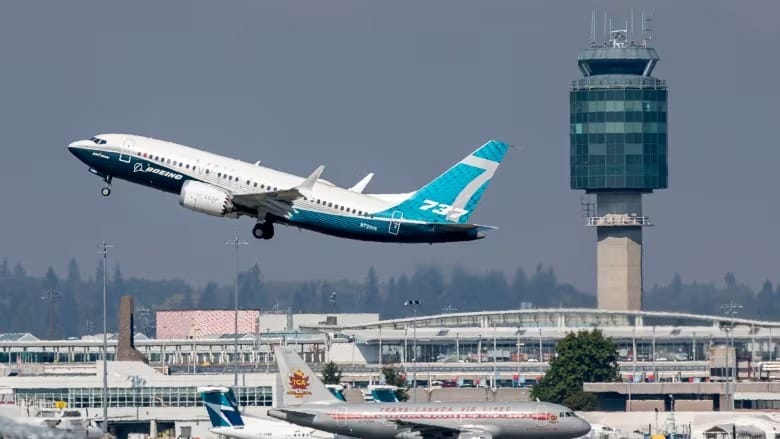U.S. warns 40 foreign operators may be flying Boeing 737s with rudder issue
The NTSB also disclosed on Monday that it has learned two foreign operators suffered similar incidents in 2019 involving rollout guidance actuators.

The U.S. National Transportation Safety Board (NTSB) announced on Monday that over 40 foreign operators of Boeing 737 planes might be using aircraft with rudder components that could pose safety concerns. This follows urgent safety recommendations from the NTSB last week regarding potential issues with the rudder control system on certain Boeing 737 models after a United Airlines flight incident in February.
The NTSB also revealed that two foreign operators experienced similar issues in 2019 with rollout guidance actuators. NTSB Chair Jennifer Homendy expressed concern in a letter to Federal Aviation Administration (FAA) Administrator Mike Whitaker, stating, "We are concerned of the possibility that other airlines are unaware of the presence of these actuators on their 737 airplanes."
The NTSB is currently investigating the February incident in which the rudder pedals on a United Boeing 737 MAX 8 became "stuck" in the neutral position during landing at Newark, New Jersey. Fortunately, no injuries were reported among the 161 passengers and crew.
According to the NTSB, 271 potentially impacted parts may be installed on aircraft in service with at least 40 foreign airlines, while 16 may still be on U.S.-registered planes. As many as 75 parts could have been installed through aftermarket procedures.
CBC News reached out to Canadian airlines including Air Canada, WestJet, Flair Airlines, and Sunwing Airlines to determine if they are among the 40 foreign carriers identified by the NTSB. A WestJet spokesperson confirmed that none of its aircraft contain the component in question. Flair Airlines stated it adheres to safety recommendations and airworthiness directives from Boeing, the FAA, NTSB, Transport Canada, and other relevant authorities, emphasizing the safety of passengers and crew. Other airlines have not yet responded.
CBC News also contacted the Transportation Safety Board of Canada and is awaiting a reply.
Homendy criticized the FAA for not addressing the issue more urgently until the NTSB issued its safety recommendations. In response, the FAA said it is taking the recommendations seriously and has scheduled additional simulator testing for October. An FAA corrective action review board met last Friday, and the agency is working quickly to inform affected civil aviation authorities about the necessary actions.
United Airlines reported last week that the rudder control parts in question were installed on just nine of its Boeing 737 planes, which were originally built for other airlines. These components were removed earlier this year. The NTSB confirmed that no U.S. airlines are operating 737s with the affected actuators, which were used in some 737 MAX and previous-generation 737 NG planes featuring an optional landing system.
In August, Boeing informed operators about the potential issue with the rudder rollout guidance actuator but did not provide further comments on Monday.





